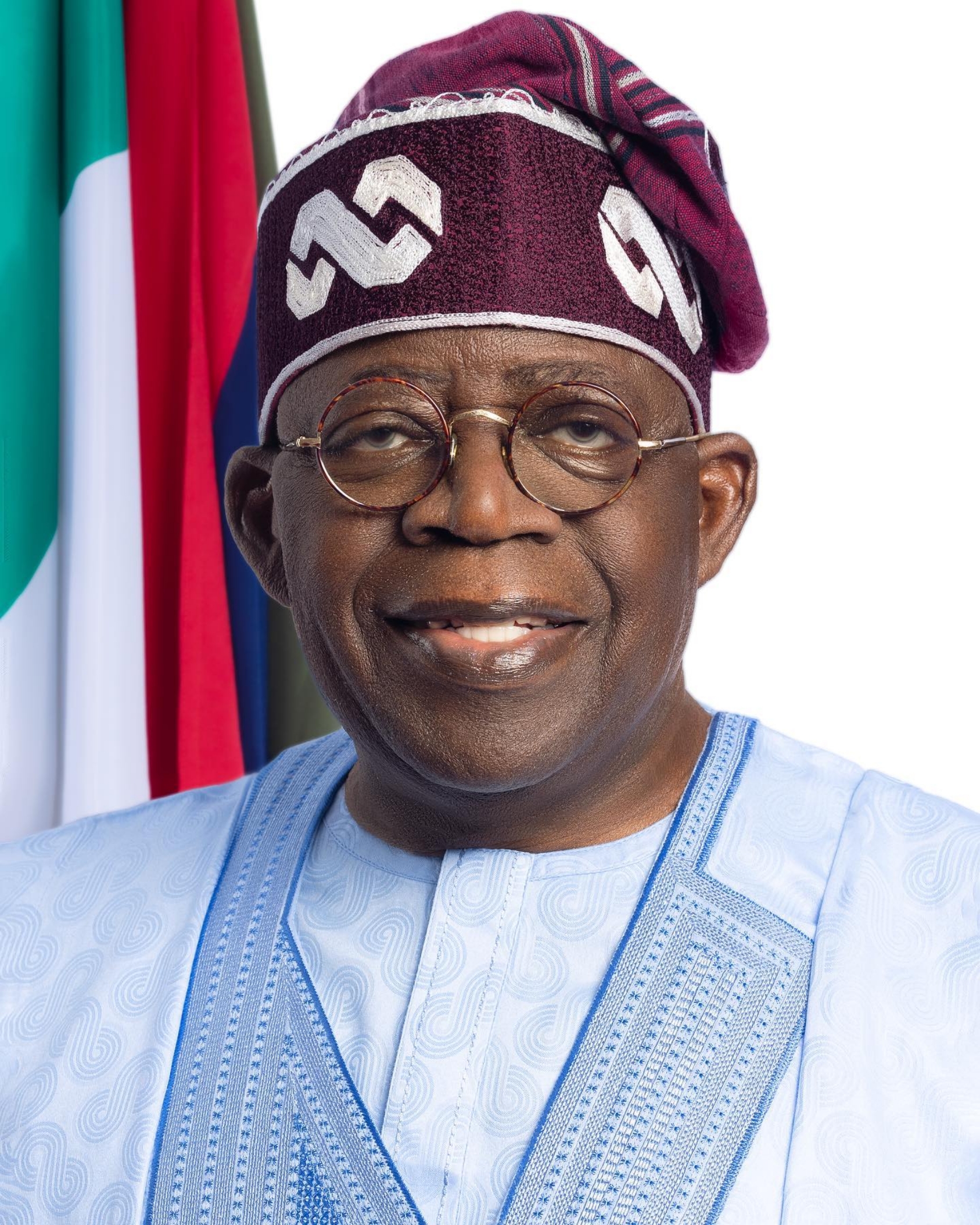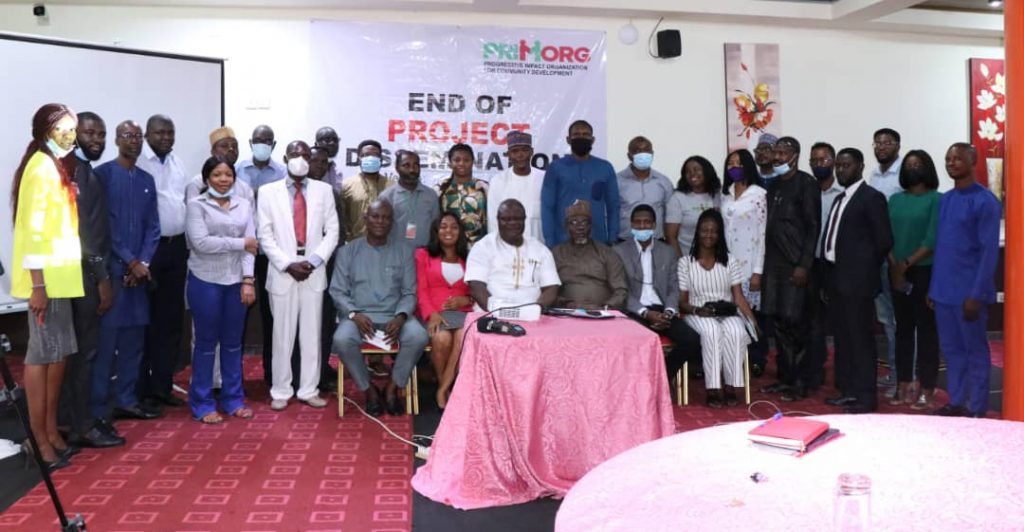Featured
Corruption: PRIMORG Engages 10 Million Nigerians In Two Years

Joel Ajayi
In its contribution towards the fight against corruption in Nigeria, the Progressive Impact Organization for Community Development PRIMORG, a non-governmental organization, through its rubout weekly town hall radio program across the geo-political zones in the country, have sensitized over 10millions Nigerians with its awareness campaign and exposing correction act, within two years of its existence.
This was made known on Tuesday, in Abuja, when the non-profit organization unveiled a two-year report, having successfully completed an anti-corruption and accountability project with support from MacArthur Foundation.
The PRIMORG, a registered non-governmental and non-profit organization in Nigeria, was established with a mandate to promote accountability, popular participation and inclusiveness in governance with the overall objective to foster good governance.
The project is titled: “Strengthening Anti-Corruption and Accountability by Amplifying Corruption Related Investigative Reports On the Radio and Through Social Media’,under which anti-corruption programs on radio, ‘Public Conscience on radio and Radio Town Hall Meetings’ was carved out.
Speaking at the occasion, Mr Okhiria Agbonsuremi said, the success of our efforts was largely due to our conscious efforts to forge partnership, collaborations, and networking with many organizations as encouraged by the MacArthur foundation.
He applauded the effort of partnership; the media houses radio television and civil society group saying their collaboration have immensely contributed to the of PRIMORG.
According to him, The Collaboration is seen by PRIMORG as one of the pullers on which the ‘On Nigeria’ project of the Foundation rest.
“In the last 2 years, PRIMORG majorly partnered International Center for Investigative Reporting (ICIR), The Cable Foundation (TCF), Premium Times Center for Investigative Journalism (PTCIJ), Daily Trust Foundation, Accountability Lab Nigeria, Socio-Economic Rights and Accountability Projects (SERAP).
“Others are African Center for Media and Information Literacy (AFRICMIL), Human and Environmental Development Agency (HEDA) Resource Center and Connected Development (CODE)
“One of the partnerships which gave us mileage was that with the international center for investigative reporting ICIR. In the course of our collaboration, we went beyond the amplification of reports to information exchanges for stories to be jointly investigated and further amplified.
While Highlighting the PRIMORG Achievement in the last two year the Executive Director Agbonsuremi revealed: “PRIMORG’s amplification of fake honey story led to the dismissal of an official of National Agency for Food and Drug Administration and Control (NAFDAC); Reduced corruption in electricity metering scheme in Pegi community in Abuja with partnership with Abuja Electricity Distribution Company (AEDC) and Nigerian Electricity Regulatory Commission (NERC).
“It was this passionate partnership that resulted in our story of change in Pegi Community, in Abuja, with the reprieve for hitherto exploited electricity consumers and the return of the contractor to the road construction that was abandoned for over 10 years.
“Not only that the Abuja Electricity Distribution Company, though a private enterprise seized the opportunity of the partnership we offered to drive home its corporate stand to remove corruption in its distribution of pre-paid meters to its customers.
“More so, through radio town hall meetings, the project celebrated Nigerians who on a daily basis are standing tall on integrity in their various place of work, as well as took campaign against corruption to the streets sensitizing citizens in the last two years.”
Other achievements include; “Nigeria law school-in response to the amplified report by PRIMORG on a report of fraud in the Nigerian law school Abuja, the school sent a press release of their responses to the auditor general’s queries on the same fraud accusations to PRIMORG.
“Joint Admissions Matriculation Board: following our discussion during a radio town hall meeting where the corruption in the educational system in Nigeria was discussed in the year 2020, it was reported on the 9th of February, 2021, that the joint admission matriculation board (JAMB) raised an alarm on the level of malpractice within the JAMB examination process and also mentioned what was needed to help prosecute defaulters within the system.
“After series of amplification of the investigative report by the cable on how for 25,000, travelers can get fake Covid-19 test results from government officials in Lagos and Abuja Airports, the Federal Capital Territory Administration (FCTA), on the 6th of February, 2021, sealed a clinic which was suspected for issuing fake Covid-19 certificates to travellers and many more.”
Executive Director Agbonsuremi, equally underlined some of these challenges which include: Poor access to information from Government Ministries, Departments and Agencies (MDAs) as well as the most worrisome which is the little or no action from the government when investigative corruption reports are published by media houses.
In his welcome address, the Chairman Governing Councils of PRIMORG, Prof. Chidi Anslem OdinKalu said fighting corruption doesn’t belong to Buhari, EFCC, ICPC and other anti-corruption agencies, saying it belongs to all of us, and for us to do that there, is a need to build a better constituency in Nigeria to fight the monster called corruption.
While unveiling the publication titled: Tackling Corruption on Air and Online” the Head of Mass Communication Department at the Baze University in Abuja Prof Abiodun Adeniyi said since 1960 the percentage of corruption increases and there is a need for us to reduce the percentage
He said that the publication will go a long way in helping create more awareness to the general public that will bring about a reduction in the percentage of corruption and another wicked habit in the country.
Also, in his report, the PRIMORG Media & Communication Officer Chidozie Ogbonnaya said the project which took off in April 2019 and ended in March 2021, made a far-reaching impact as citizens and government’s attention were continuously drawn to reported corruption stories in Nigeria.
According to the report, the programs were aired in the 5 geo-political zones of Nigeria; 8 radio stations across the nation were used to syndicate the program weekly with over 10 million people reached; at least 307, 409 people were engaged on social media; 416 Public Conscience on Radio syndications; 26 Radio Town Hall meetings; 2 Community Town Hall meetings; 36 Vox pops (public opinion); and over 1,090 feedbacks from listeners.
However, different stakeholders who contributed during the commended PRIMORG and called on government at all level to be serious on the fight against corruption saying government should back its words with action.
While some speakers appealed to the MacArthur Foundation to continue with the project saying that with their effort corruption and some of inhuman act in Nigeria will be the thing of the past.
Featured
President Tinubu Decries Violence In Rivers, Directs Police To Provide Security To LGA Offices

Joel Ajayi
President Bola Tinubu has called on Governor Siminalayi Fubara, political leaders and their supporters in Rivers State to exercise restraint and uphold the rule of law.
In response to recent tensions following last Saturday’s local government council election, the President expressed deep concern over reports of arson and explosions in the state.
He urged all political actors to de-escalate the situation and discourage their supporters from engaging in violence or destructive actions.
President Tinubu directed the police to restore and maintain peace, law, and order immediately.
While instructing law enforcement agencies to bring the situation under control, he emphasised the need to ensure the security of public institutions.
President Tinubu said government facilities built with public funds must be safeguarded from vandalism.
He stressed that self-help has no place in a democratic system, especially after 25 years of continuous democracy.
According to President Tinubu, the judiciary can settle all political disputes, and the outcome of this election should be no exception.
-

 Featured5 years ago
Featured5 years agoLampard Names New Chelsea Manager
-

 Featured5 years ago
Featured5 years agoFG To Extends Lockdown In FCT, Lagos Ogun states For 7days
-

 Featured5 years ago
Featured5 years agoNYSC Dismisses Report Of DG’s Plan To Islamize Benue Orientation Camp
-

 Featured5 years ago
Featured5 years agoChildren Custody: Court Adjourns Mike Ezuruonye, Wife’s Case To April 7
-

 Featured3 years ago
Featured3 years agoTransfer Saga: How Mikel Obi Refused to compensate me After I Linked Him Worth $4m Deal In Kuwait SC – Okafor
-
Sports2 years ago
TINUBU LAMBAST DELE MOMODU
-
Featured5 years ago
Board urges FG to establish one-stop rehabilitation centres in 6 geopolitical zones
-

 News1 year ago
News1 year agoJubilation In Kaduna As Tribunal Upholds Ekene Adam Winner Of Reps Election


